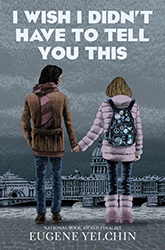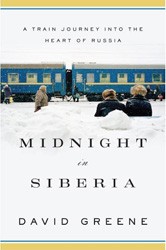In 2017, Zina Abraham attended a Chabad women’s study group in Florida. She was asked where she was originally from. Her answer sparked much interest: she was born in a Russian prison in 1933.
Authored by her daughter, Dahlia Abraham-Klein, Caravan of Hope is an incredible story of displacements, immigrations, and perseverance. In addition to recounting Zina’s life, Abraham-Klein describes the history and culture of Bukharan Jews — the ancestors of Jews who lived in the Central Asian Emirate of Bukhara, which is now primarily Uzbekistan. They spoke Bukharan, a dialect of the Tajik language and a form of Persian. Long persecuted and discriminated against in their isolated communities, Bukharan Jews lived precarious lives that depended on the whims of various rulers, political forces, and ever-changing edicts and laws.
Zina’s father, Hasid Shamash, was a successful merchant who plied the ancient Asian caravan trade routes and was forced to run from the authorities for having diamonds in his possession. His pregnant wife, Dora, was put in prison when she wouldn’t give up Hasid’s whereabouts. Dora was eventually freed — but only six months after her daughter Zina was born. They then began a perilous journey of escape and exile through Russia, Afghanistan, Pakistan, India, and Israel before they finally settled in the US. Dora was a modern thinker who, unlike most Bukharan women, had experience working outside the home and learned to survive and adapt to new conditions and surroundings. She strove to hold onto her deep Bukharan and Jewish roots as she brought up her growing family.
Caravan of Hope is full of rich cultural and historical details. Abraham-Klein writes at length about the significance of her ancestors’ traditions, customs, foods, and dress. Although traditional women’s roles and strict adherence to Jewish law were highly valued, Dora — who was often alone due to her husband’s business travels — made sure to instill survival skills, business acumen, and an appreciation for higher education in her daughters and son.
Zina married her husband, Bukharan Yehuda Abraham, in Israel, but moved with him to India for the sake of his business. In the 1950s, Zina, Yehuda, and their family immigrated to Rego Park, New York seeking religious, educational, and financial freedoms. Soon, Yehuda’s family business was thriving, even expanding internationally. They moved to a new home, became active in the Sephardic community, built a new Sephardic temple, and engaged in worldwide philanthropy work. Untold numbers of Bukharan Jews passed through the Abraham’s Queens home, where Zina and Yehuda graciously provided food, clothing, money, advice, employment, and succor. They became community leaders and the recipients of numerous awards and accolades.
This sweeping account of Zina Abraham’s life contains a map of Central Asia, simple-to-follow translations, a succinct timeline (1906 – 2017), and pages of Zina’s extended family’s photos — all of which enhance the reading experience and reflect the history of many Jews. Abraham-Klein writes from a place of love and respect for her family, chronicling their story of survival, commitment, and unrelenting hope.
Renita Last is a member of the Nassau Region of Hadassah’s Executive Board. She has coordinated the Film Forum Series for the Region and served as Programming and Health Coordinators and as a member of the Advocacy Committee.
She has volunteered as a docent at the Holocaust Memorial and Tolerance Center of Nassau County teaching the all- important lessons of the Holocaust and tolerance. A retired teacher of the Gifted and Talented, she loves participating in book clubs and writing projects.




